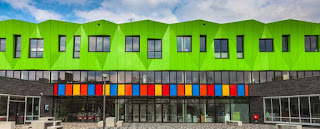Leading a school in an age of disruption driven by
technology is not easy. There are so many critical issues that schools are
facing and need to be tackled.
In this blog we want to confine our thinking to one issue only
– the need and opportunity to rethink
schooling.
The need
Sounds
desperate. But we are not desperate! Some talk about the issue of rethinking
schooling as if we had never started. This is silly. For years keen educators
all over the world have been exploring ways to rethink and improve schooling.
We are not just starting now, much progress has already been made in
transforming schools. What we need to do is to continue this work, moving at a
faster pace than ever before, just to keep up with all the other changes in
society – especially the immense opportunities afforded by the huge advances in
digital technology.
Rethinking schooling does not mean that schools will
disappear any time soon. It means that at every opportunity we will leverage all
of our resources, knowledge and skills to make the contemporary schooling
experience, challenging, stimulating, relevant and future focussed.
The opportunity
The opportunity
What role does and can digital technology play in this
exciting movement? How can our schools continue to evolve? Digital technology
is making many things possible now and our quest to continue to transform
schooling is greatly enhanced.
Global collaboration
and cooperation by school students is now commonplace and growing. No
longer do students need to be confined to their four classroom walls. Team
work, group work, sharing and collaborative problem solving, bring a refreshing
new look to many classrooms, all made possible by the advances in digital
technology.
No longer does the teacher need to be the expert. A myriad
of technologies available provide diverse
knowledge sources, a phenomenon which
has drastically changed the role of the teacher in progressive schools. The
potential for organising a classroom differently, is now very high.
Technology offers schools the opportunity to customise on a large scale. This is a
far cry from the uniform learning practised in more traditional schools.
Standardised assessment has driven what we accomplish in schools
for far too long. Technology changes this to the extent that it encourages
students to forge their own direction, pursuing their own interests. Individualised
lesson plans, specialisation and specialised
assessment are the result.
Technology has shifted the need for knowledge to be stored
in the head. Because of the explosion of knowledge and technology, knowledge can now reside outside of our heads
in external resources and our reliance on these resources is great. In
short, with technology, we can know and get through a lot more.
The knowledge explosion makes it very difficult for a school
to cover all the important information students may need for the rest of their
lives. Covering an overcrowded curriculum is nigh on impossible. The nature of
learning has to change and thankfully the explosion of technology allows it.
Students must now learn how to learn
and search for the information and resources they need. A very different kind
of interacting in the classroom emerges.
By its very nature technology fosters a more hands-on, activity based schooling experience, allowing “learning
by doing”, in contrast to passively learning by simply acquiring knowledge.
Creativity, making, robotics, imagining, hypothesising, simulation and
augmented reality experiences are more possible and come to the fore.
We cannot underestimate the value of digital technology in developing students with analytical minds. One time complex problems are now made simple earlier in a child's development. Through technology, our students experience the joy of understanding concepts that were once out of their reach, allowing them to engage more fully with their environment and the things that truly interest them - and they are capable of doing this at a much earlier age.
We cannot underestimate the value of digital technology in developing students with analytical minds. One time complex problems are now made simple earlier in a child's development. Through technology, our students experience the joy of understanding concepts that were once out of their reach, allowing them to engage more fully with their environment and the things that truly interest them - and they are capable of doing this at a much earlier age.
Sustaining the change
The opportunities to change by leveraging technology clearly
abound. However the trick to achieving sustainable change in schools is to
learn how to scale innovation - how
to take a great idea and have it reach every leader, teacher and student in the
school. Scaling innovation will feature in our next blog.
If
you wish to learn more about how to leverage
technology to rethink schooling, why not attend the 2016 Leading a Digital
School Conference to be held at the Crown Conference Centre, Melbourne on 25, 26 and 27 August
2016? Your colleagues will be more than happy to share their experiences with
you.


